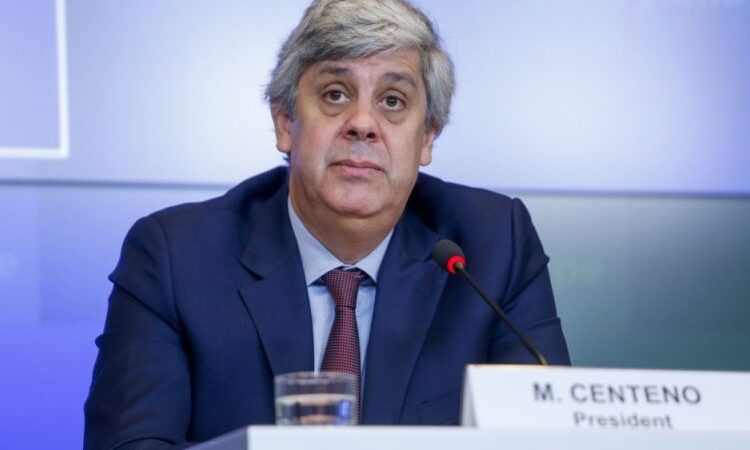
Keeping interest rates at their current levels will be ‘decisive’ in bringing down inflation, governor of the Bank of Portugal, Mário Centeno, said on Monday, adding that he considers the inflation rates ‘more socially unjust’ than measures to combat it.
The interview occurred after the European Central Bank (ECB) announced on Thursday that it would raise its three key interest rates by 25 basis points, putting the deposit rate at the highest level ever in the eurozone.
“We think that if we keep them [the European Central Bank’s interest rates] at this level, we’ll do something decisive so that inflation can converge towards 2%, which is our goal. The most important thing at the moment was to provide some predictability so that we can adapt to what awaits us in the coming months,” Mário Centeno told El Pais in an interview published on Monday.
Mário Centeno told El Pais that the “risk of doing too much is always present in monetary policy”, as was the case in 2008 and 2011 when the ECB “had to go backwards because raising interest rates was not compatible with price, financial and economic stability”. “This risk is real, and we must be vigilant,” he said.
Asked if he was in favour of stopping the ECB’s rate rises now, Centeno replied: “We can’t deviate from this path because inflation is more regressive and socially unjust than the measures we use to combat it, which are often harsh and harm the economy.”
“The problem is that so is inflation. In the governing council [of the ECB], we try to manage this difficult balance,” he added.
“For the governor of the Bank of Portugal, “the key to continuing to lower inflation and resist rising interest rates is the labour market, which is at historic highs” in Europe.”It’s almost an obligation of all policies, including monetary policies, to protect this new ‘status quo’, which keeps us away from the stigma of stagflation,” he said.
Centeno added that to avoid “large increases in unemployment and social problems”, “predictability and coordination of policies” are necessary while recognising that the situation is not uniform in all EU countries.
“Monetary policy is unique, although we know its impact is different. For that, there’s fiscal policy, and that’s what we achieved during Covid and the rise in energy prices,” he argued, adding that central banks recommend that “fiscal policy should maintain selective support for the most vulnerable because there’s room in fiscal policy to do so.”
Asked about the impact of rising interest rates in countries like Spain and Portugal, where there is a large proportion of housing loans with variable interest rates, Centeno replied that the central banks are calling for “pre-existing savings capacity and an adjustment in the way families manage their budgets.”
“But we know that this is easier to do if we know what the future will be like. We must also manage expectations with monetary policy to provide predictability. And that’s what we achieved on Thursday, a phase that gives us predictability, a compromise European families deserved. Then there’s the public support that almost every country has,” he added.
Regarding the large profits of the banks in this context and the possibility of the banks contributing to support for families, Centeno said that “part of this is cyclical” and “the banks have to keep a substantial part of these profits because they may have to respond to the potential deterioration in loans”, which is currently not seen “because the labour market is strong.”
“The problem for the banks is that their cycles have a correlation that is difficult for citizens to understand,” who feel “more pressure” when “the banks are doing well,” he concluded.
(Margarida Pinto, edited by Cristina Cardoso | Lusa.pt)






